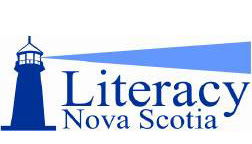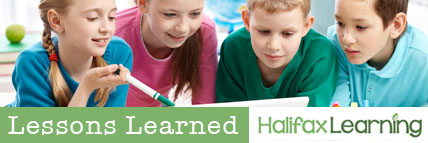The importance of reading is established, but we could talk all day about the research and data that supports this. Instead, I thought this topic could use a little humanization.
After all, at the end of all those data points are individuals like you and me, dealing with their own versions of life’s ups and downs. So here is a snapshot (with just a little data) into how literacy has changed lives here in Nova Scotia and around the world.
Yaidilis Jimene
A mother of four in the Dominican Republic, Yaidilis took part in an adult literacy project because her eldest son didn’t want to go to school. She learned English phonetics and the alphabet, eventually learning how to read and write. And it’s good thing she did. A few months later one of her children got sick. The doctor gave Yaidilis medicine and sent her home with written instructions. When she read the bottle, she realized the doctor had given her the wrong medication. She returning to the clinic and was told that her child would have died if she’d been given the wrong medication.
This is not an isolated case. Robert LeVine is Professor of Education and Human Development, Emeritus, at Harvard University. His wife Sarah is an anthropologist. Together they’ve been studying the link between a mother’s classroom experience and her child’s health/survival. Their various studies show that the more schooling women in developing nations receive, the healthier their children are. UNESCO’s publication Education Transforms Lives gives a great overview of how education saves lives in developing countries.

But while illiteracy isn’t as widespread here in Canada, it would be foolish to dismiss literacy challenges as something that happens elsewhere. According to the OECD’s 2013 Programme for the International Assessment of Adult Competencies, 38% of Nova Scotian adults struggle with low literacy. And that number climbs as high as 55% in some rural communities. This is as local as it gets.
Literacy Nova Scotia
Since 1992, Literacy Nova Scotia has been working to ensure that all Nova Scotians have equal access to literacy and essential skills as well as future learning opportunities. Each year they select a handful of adult learners to feature during Adult Learners Week. Scrolling through their website offers many success stories to choose from. Take Rukhsora Sangova, for example. Originally from Tajikistan, Rukhsora is an ESL student at the Cunard Learning Centre. Thanks to her improved literacy, she can now pursue her goal of becoming home care nurse. Mahnaz Musawi has also studied at the Cunard Learning Centre and intends to become a pharmacist. Without the literacy skills to pursue advanced education, neither Rukhsora nor Mahnaz would be able to support their families here in Halifax.

Literacy is fundamental to economic stability. This report shows that at least $2 of economic benefit is returned for every $1 invested in early learning and childcare. This Canadian Education Association report states that a 1% increase in adult literacy would result in a 1.5% increase in Gross Domestic Product. That’s roughly $18 billion – with a ‘b’ – more money in government coffers every year. Remember that nearly 40% of adults in Nova Scotia have low literacy, so there is lots of potential to transform communities and lives.
Bibliotherapy
The stories above show literacy’s potential to impact physical health and provide opportunity, but how about mental health? Anyone who reads understands the emotive potential of stories, but you don’t need to be a book lover to understand the power narrative has to create emotion and change perspective. Public speaking and marketing embody this power. But if you haven’t been moved to tears by a piece of fiction, I enthusiastically encourage you to try. Ask around and see if your friends or family can recommend an emotional read. It isn’t a regular occurrence, but the times literature has made me cry left me feeling strangely rejuvenated and empathetic, and they also stand out as uniquely strong memories. Check out this blog for another perspective on the healing power of books.
This brings me to bibliotherapy. First noted in a 1920 the novel The Haunted Bookshop, it actual predates the printing press. This article and this article explain bibliotherapy in detail, but the idea is to use literature to address emotional challenges ranging from loss and grief to depression, addiction, and even most varieties of abuse. By combining self-reflection and the universalization (recognition that we are never the only ones to think or feel a certain way), bibliotherapy offers a reading prescription.
Click here to learn more about bibliotherapy
Consider these stories about people in far away places being saved by reading, the social and economic benefits of literacy in your own community, or my self-administered bibliotherapy. They are but three examples of many around the world that show the power literacy has to literally save lives.
Written by Max Gordon from Halifax Learning. With various locations in the city, Halifax Learning Centre offers many different programs to suit everybody’s needs – it’s more than just tutoring! For more information on programs like SpellRead, Momentum Math, French and more visit their website



